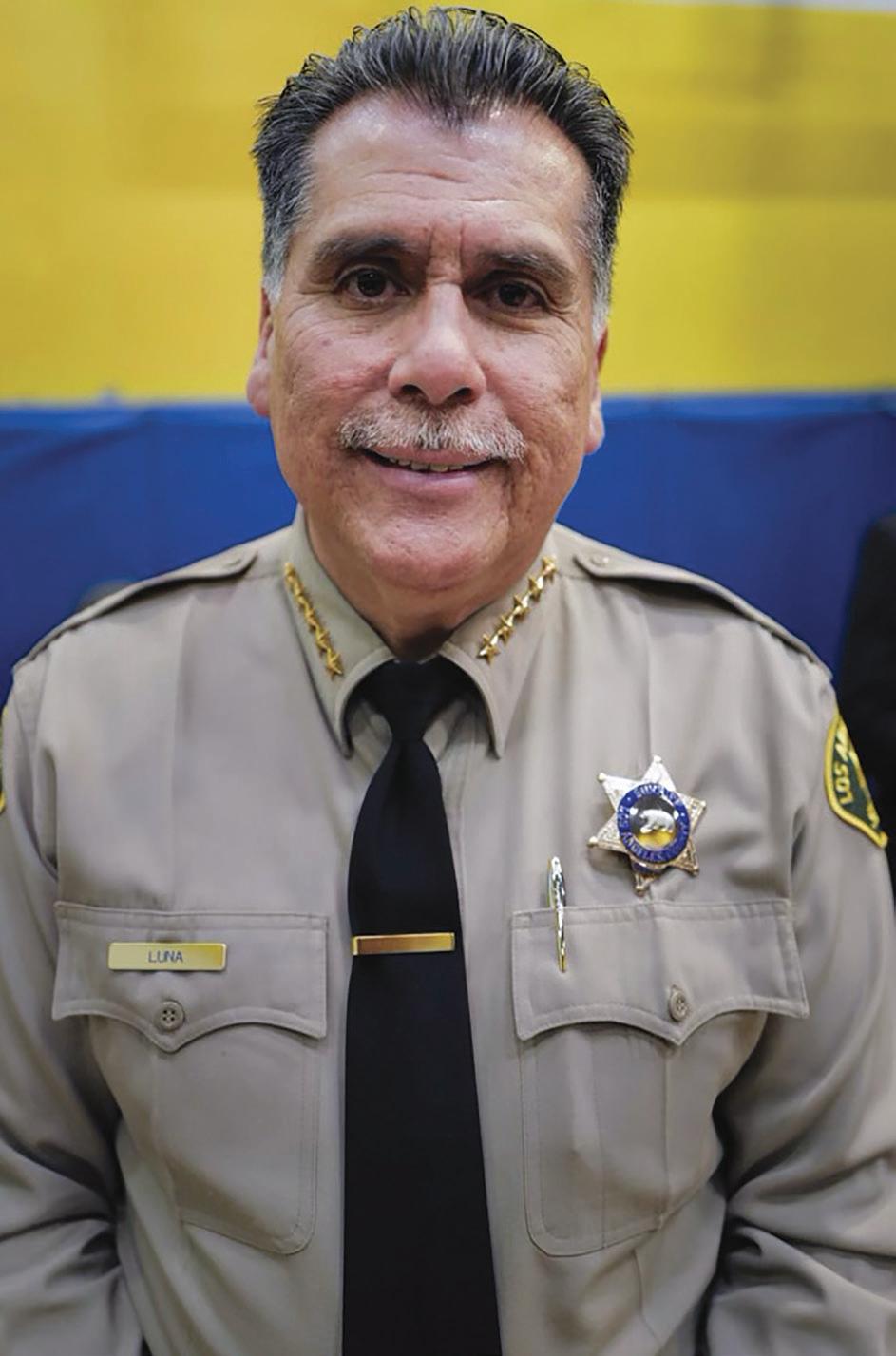
5 minute read
As Nation Mourns, California Debates Concealed Firearm Laws
Maxim Elramsisy
California Black Media
Advertisement
On March 28, one day after three children and three adults were shot at the Covenant School, a Christian elementary school in Nashville, Tenn., the California Senate Public Safety Committee heard arguments for and against Senate Bill (SB) 2, legislation proposing enhancements to California’s existing concealed carry permit law.
“God bless the families of those little kids,” said the bill’s author, Senator Anthony Portantino (D-Burbank) at the hearing. “Gun violence inflicts a terrible toll on our communities. Last year, nearly 20,000 people were killed in gun related homicides in the United States. To put that in perspective, it’s enough people to fill forty Boeing 747s, and sadly, the number keeps rising.”
SB 2 would make 21 the required age to apply for a Concealed Carry Weapon (CCW), although existing state legislation restricts the sales of pistols to people under 21. A system of appeals would also be created for people initially denied the permit. The bill would also limit where people can carry firearms, creating locations called “sensitive sites” where guns would be prohibited. Property owners of sites where guns are off limits would have the authority to allow guns if they choose.
California’s prior concealed carry permit law, which required that applicants show reason for needing to carry a concealed firearm, was deemed unconstitutional by the U.S. Supreme Court last year in the case of New York State Rifle & Pistol Association, Inc. v. Bruen.
In a 6-3 vote, the high court’s conservative majority ruled that “may-issue” systems, like those used in New York, California and three other states using “arbitrary” evaluations of need, made by local authorities, are unconstitutional. States are, however, allowed to enforce “shall-issue” permitting, where applicants for concealed carry permits must satisfy certain objective criteria, such as passing a background check.
“Bruen affirmed the ability of states to keep firearms out of the hands of dangerous individuals and out of certain sensitive places. With SB 2, California does just that. It provides objective, reasonable guidance that prevents CCW permits from being issued to dangerous individuals and provides a list of places where weapons may not be carried,” said Portantino. “The presence of firearms in public increases the dangers of intentional or accidental gun violence—at the workplace, at the movies, or on the road. One study showed that states with permissive right-tocarry laws experience 29% more workplace homicides than states with more restrictive licensing requirements.”
During the hearing, opposition came from handfuls of law enforcement groups, particularly from the southern part of the state, including the Los Angeles Police Officers Association and the Orange County Sheriffs Association.
“Addressing Bruen in this way is unnecessarily complicated and overly burdensome,” said California State Sheriffs’ Association Legislative Director Cory Salzillo. “Given what we’ve seen in other states, it is likely to be challenged and probably overturned in whole or in part.”
In the nation’s most populous county, the Los Angeles County Sheriff Department (LASD) is responsible for taking applications and issuing CCWs. Though the Sheriff did not endorse the bill publicly, the Los Angeles County Board of Supervisors did, and in a written statement to California Black Media (CBM) the LASD appeared to tacitly support the bill.
“Recently, several of our California Government leaders have joined together to announce new gun legislation which would enhance gun safety laws in California. The Los Angeles County Sheriff’s Department has partnered with the Board of Supervisors on the added gun safety measures and how we can bring awareness to the communities we serve,” the statement said.
Before the hearing, CBM asked Los Angeles County Sheriff Robert Luna about the proposed bill.

“I believe we have to change the status quo when it comes to guns because there’s way too much gun violence,” he said. “I don’t want to take guns away from legal gun owners, but I always believe that there has to be a path to doing it right.”
The threat of legal challenges is almost certain.
“Any law that we passed through the Legislature, someone can bring a challenge to. That’s not a unique circumstance. This bill will probably be challenged,” said Portantino. “But do we believe it’s constitutional? Absolutely. We looked at the Bruen decision as a roadmap to create a constitutionally sound approach. The Supreme Court said you can’t be arbitrary, so this bill is not arbitrary. It’s creating concrete criteria of who should and shouldn’t be eligible to get this responsibility of having a concealed carry permit, that’s consistent with the Supreme Court. The Supreme Court said you can have prohibited places. This bill has prohibited places that make sense.”
The Bill was advanced through the committee after a 4-1 vote and will next be heard on April 10 by the Committee on Appropriations.
2022, California Gov. Gavin
‘’If we were to lose, we would not be getting invited to the White House,” she added. “I remember she made a comment about both teams should be invited because of sportsmanship. And I’m like, ‘Are you saying that because of what I did?’ Stuff like that, it bothers me because you are a woman at the end of the day. White, Black, it doesn’t matter, you’re a woman, you’re supposed to be standing behind us before anything.”
1st Moon Crew in 50 Years Includes Woman, Black Astronaut
By MARCIA DUNN
AP Aerospace Writer NASA on Monday named the four astronauts who will fly around the moon late next year, including the first woman and the first African American assigned to a lunar mission.
The first moon crew in 50 years - three Americans and one Canadian - was introduced during a ceremony in Houston, home to the nation’s astronauts as well as Mission Control.
“This is humanity’s crew,” said NASA Administrator Bill Nelson.
The four astronauts will be the first to fly NASA’s Orion capsule, launching atop a Space Launch System rocket from Kennedy Space Center no earlier than late 2024. They will not land or even go into lunar orbit, but rather fly around the moon and head straight back to Earth, a prelude to a lunar landing by two others a year later.
The mission’s commander, Reid Wiseman, will be joined by Victor Glover, an African American naval aviator; Christina Koch, who holds the world record for the longest spaceflight by a woman; and Canada’s Jeremy Hansen, a former fighter pilot and the crew’s lone space rookie. Wiseman, Glover and Koch have all lived on the International Space Station. All four are in their 40s.
“This is a big day. We have a lot to celebrate and it’s so much more than the four names that have been announced,’’ Glover said.
This is the first moon crew to include someone from outside the U.S. - and the first crew in NASA’s new moon program named Artemis after the twin sister of mythology’s Apollo. Late last year, an empty Orion capsule flew to the moon and back in a long-awaited dress rehearsal.
“Am I excited? Absolutely,” Koch said to cheers from the crowd of schoolchildren, politicians and others. “But my real question is: ‘Are you excited?’ “ she said to more cheers.
The Canadian Space Agency snagged a seat because of its contributions of big robotic arms on NASA’s space shuttles and the space station. One is also planned for the moon project. Hansen said he’s grateful that Canada is included in the flight. “We are going to the moon together. Let’s go!” he said.
During Apollo, NASA sent 24 astronauts to the moon from 1968 through 1972. Twelve of them landed. All were military-trained male test pilots except for Apollo 17’s Harrison Schmitt, a geologist who closed out that moonlanding era alongside the late Gene Cernan. Provided this next 10-day moonshot goes well, NASA aims to land two astronauts on the moon by 2025 or so. NASA picked from 41 active astronauts for its first Artemis crew. Canada had four candidates. Almost all of them took part in Monday’s ceremony at Johnson Space Center’s Ellington Field, a pep rally of sorts that ended with Wiseman leading the crowd in a chant.
with provisions endorsed Senate Bill (SB) 918, also authored by to SB

That bill the
President Joe Biden spoke with the four astronauts and their families on Sunday. In a tweet Monday, Biden said the mission “will inspire the next generation of explorers, and show every child - in America, in Canada, and across the world - that if they can dream it, they can be it.”









